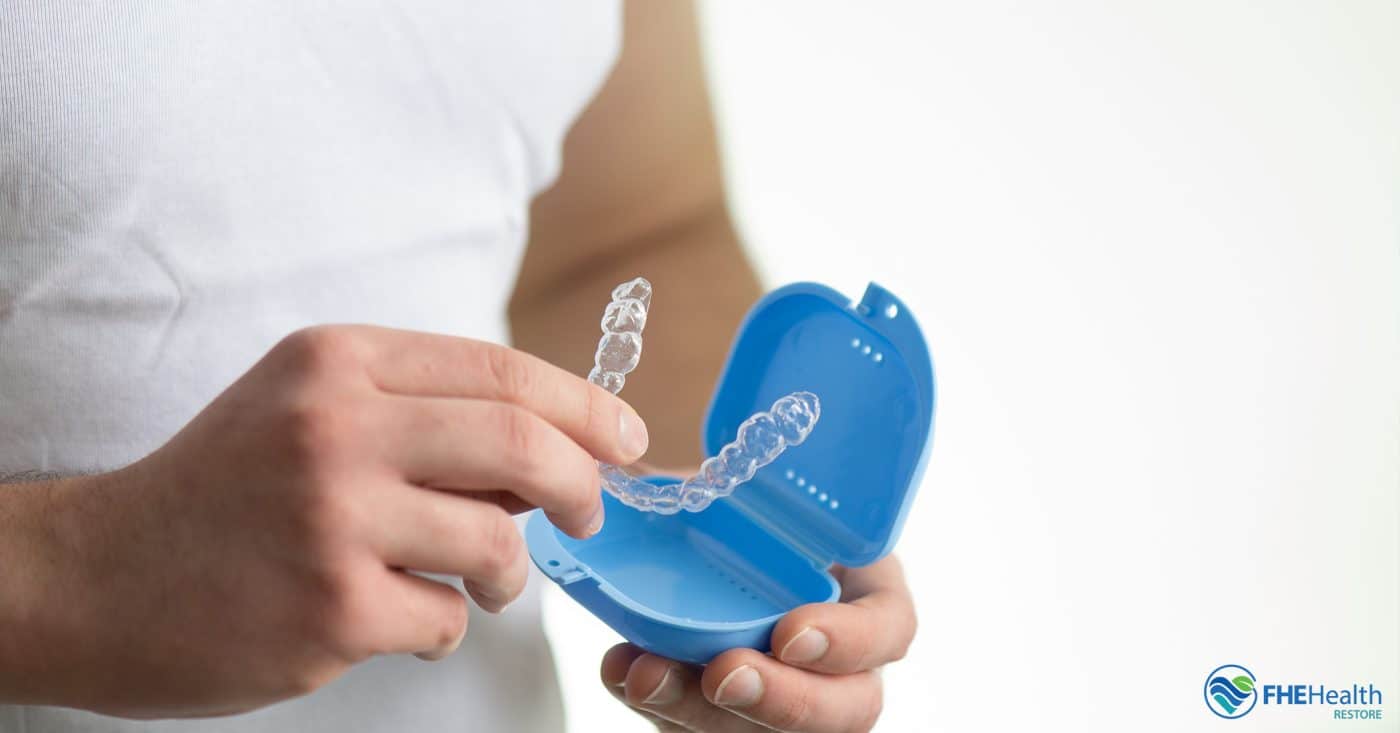Braces can have a life-changing impact. After all, resolving dental issues can do wonders for a person’s self-esteem and significantly boost their self-image and confidence. However, wearing braces can also have a negative effect on mental health, especially in adults. The problem doesn’t stop at braces either. A variety of orthodontic equipment can have the same impact, including retainers and palate expanders.
Under most circumstances, an individual might have to wear braces for as long as three years depending on their age and the severity of teeth misalignment. In childhood, this can result in some teasing from other children—and maybe even adults. The side effects of braces for adults can be even more severe. Because they are less common in adulthood, braces might invite more negative comments and have a larger impact.
In the sections that follow, you’ll learn more about these effects and how to manage the mental and emotional struggles that braces and similar dental equipment might bring. These range from learning how to overcome negative thoughts to moving past comments that others might make and accessing professional help, when necessary.
Emotional Reactions to Braces and Dental Work
Even the most body-positive and confident person in the world has days where they struggle with their mental health and self-image. That is the nature of being human. Orthodontic equipment can be quite visible and obvious, triggering feelings of self-consciousness. This can, in turn, lead to a range of body image issues.
Further, dental wear has an unfortunate negative image and stigma attached to it due to years of media portraying people with this equipment as losers, nerds, or social outcasts. While this stereotype has relaxed in recent years, it is still extremely common. These representations stick with people.
Because society tends to view braces on people as “uncool,” a person with braces can automatically start to view themselves negatively. Other people may only reinforce these views by poking fun at their braces. Even close friends and family may innocently tease them, but those comments can cause some level of distress. Especially in children, hurtful comments may trigger feelings that last a lifetime.
And beyond the visuals of dental wear impacting the way a person looks, the equipment can also impact how they speak. Developing a temporary lisp is extremely common and might also cause problems with self-esteem and negative comments from others.
This is on top of the fact that people with braces may have already been experiencing some issues with their mental health. All of the negative feelings that occur with orthodontic equipment are also there when a person has crooked or missing teeth.
People who struggle with their body image due to dental issues may find themselves avoiding social situations. Even when they do connect with others socially, they may intentionally avoid smiling, laughing, or even talking. If they do need to perform one of these actions, they may cover their mouths to hide their teeth or braces.
Coping Strategies for Braces and Other Dental Issues
If you are struggling with the psychological side effects of your braces, know that you are not alone and that this is extremely common. It’s normal throughout this process to have periods of impatience and frustration along with some mild feelings of depression or anxiety. Keep in mind that this equipment is temporary. Studies have proven that once a person’s smile is straightened, they experience a massive boost in their body image and self-esteem. Mental health problems stemming from their teeth often fade away and are replaced with greater confidence.
Looking forward to the future and assuring yourself that each day is another step closer to your perfect smile often helps. If you’re using something like Invisalign, depression and anxiety can make it difficult to keep up with your routine. On the other hand, following your dental prep and routine can help you make your way through the depression funk. Doing your best to stick to these tasks is so important for managing feelings of depression.
When eating with others, do your best to avoid sticky or hard foods that could damage your braces or become stuck. Even though it’s not your fault, it can be embarrassing when someone points out food stuck in your braces. Plus, damaging your braces can be painful.
Finding Support
It can also help to find people who wore braces and are open about their experience. From online communities to in-person support groups, you can find help from people who were in the same position. They can give you advice on how to move forward, what the process was like for them, or simply help you feel less alone.
You can also find support from people you don’t know. Seeing influencers, celebrities, or people of renown who had braces may provide a sense of relief. After all, if someone in the public eye like Gwen Stefani can rock braces at 29, so can you.
Ultimately, the brain is a complex organ. Even if you reassure yourself constantly and your friends and family are supportive, those negative thoughts can still creep in, causing you to feel down. Getting help from a professional counselor may help you cope with and overcome those self-defeating thoughts and feelings.
Therapists who practice Cognitive Behavioral Therapy (CBT) and other techniques can help you improve your body image and address the emotional roots of the problem. A therapist may also reinforce that you do not have a responsibility to look “perfect” and that any perceived issue you have with your image is not a reflection of who you are as a person or how other people see you. Through CBT, you’ll learn to spot situations that prompt your self-criticism and employ strategies for overcoming the negative self-talk.
If you or someone you know is struggling with their mental health because of their braces, help is available. Contact us today for a free consultation.


